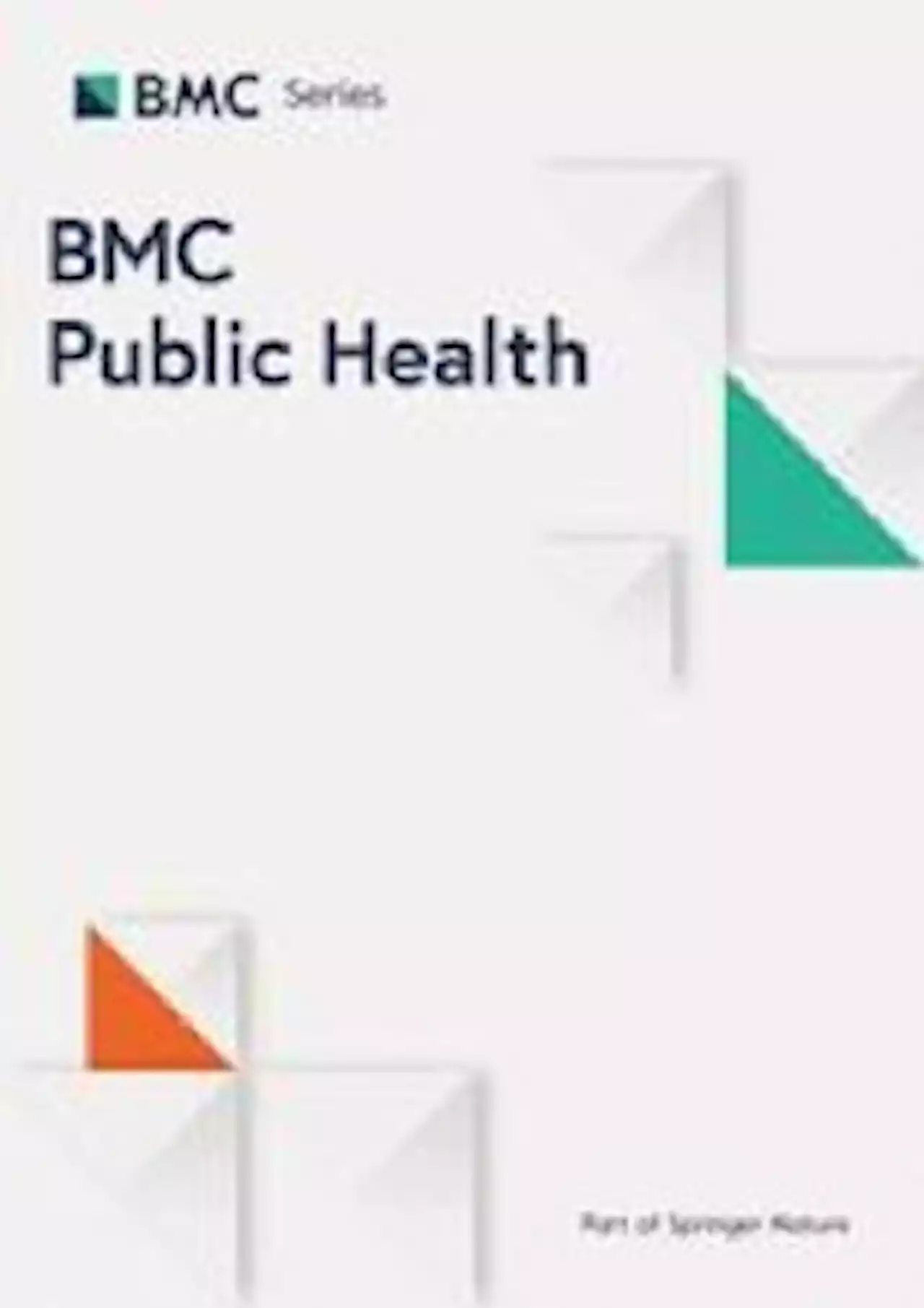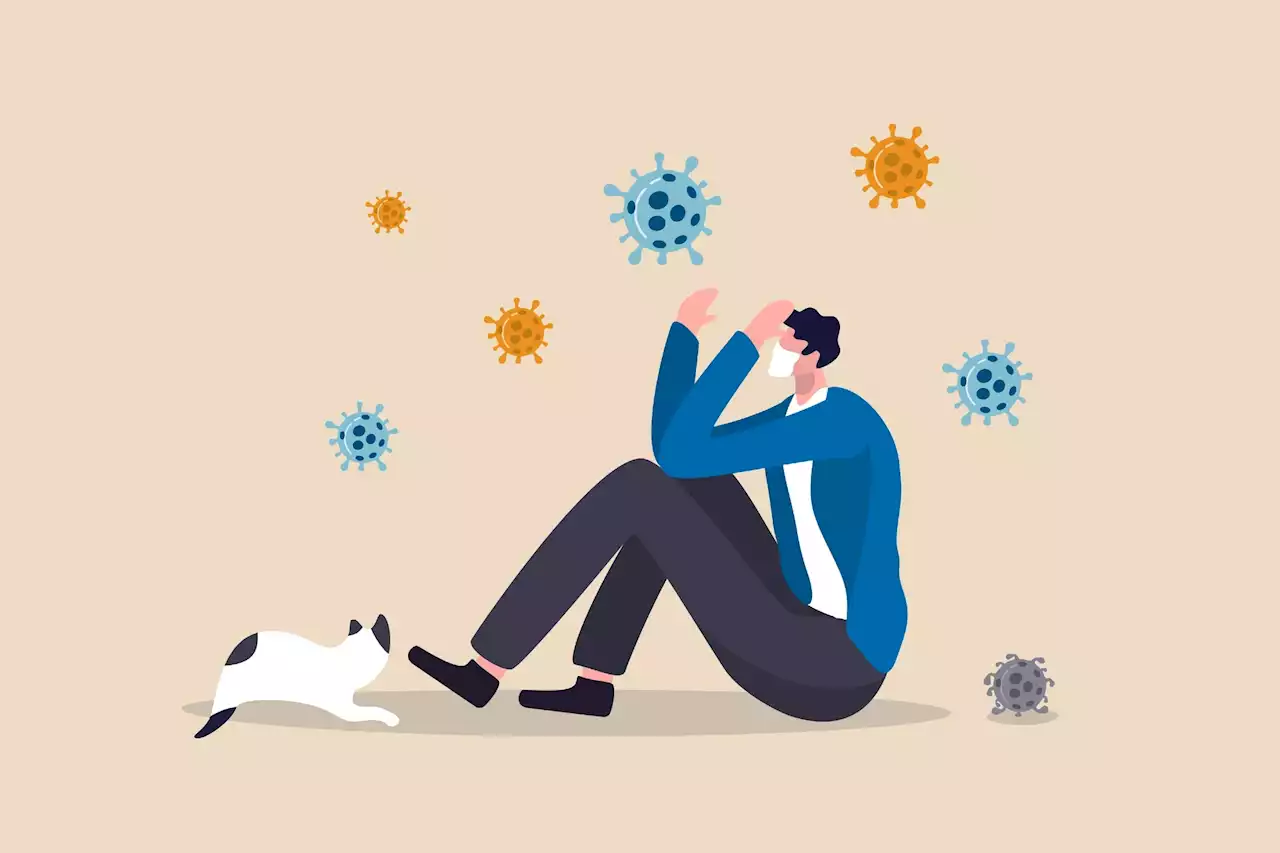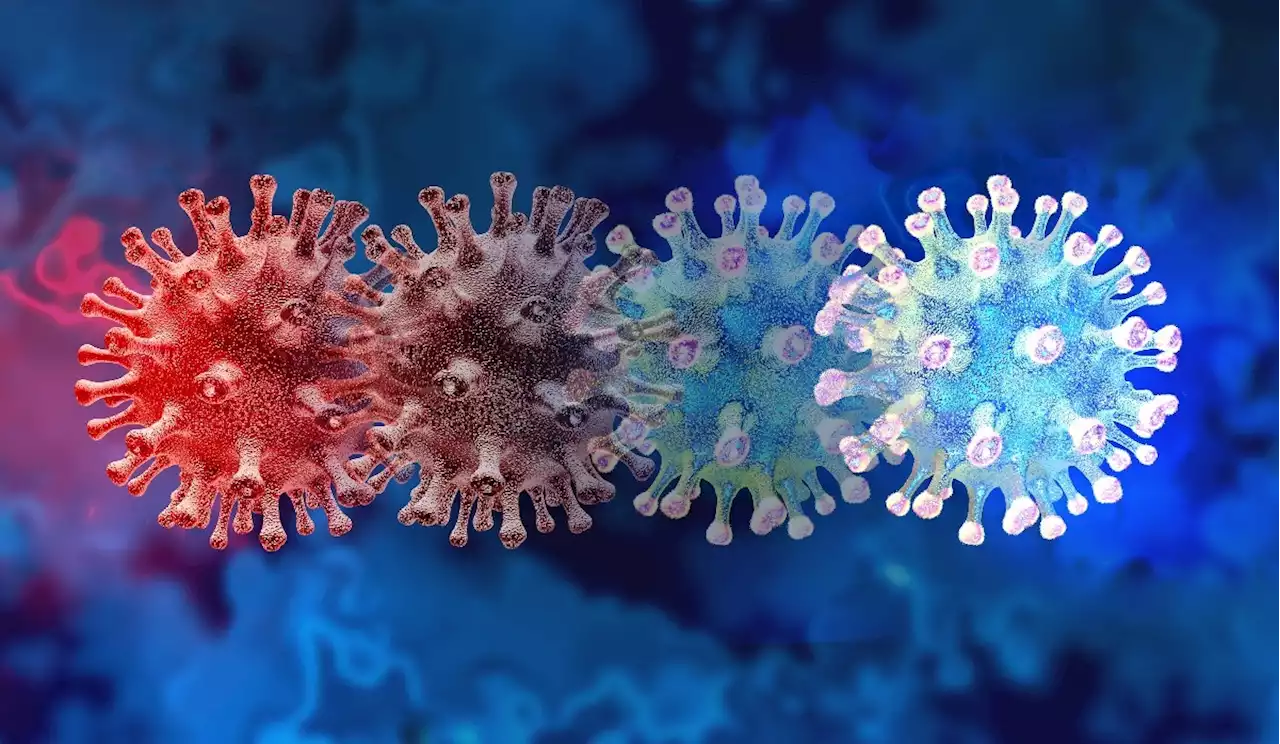At least 17 million people in the EU may have Long COVID, and women are more likely than men to get it, the World Health Organization said
JERUSALEM — New research suggests at least 17 million people in the European Union may have experienced Long COVID-19 symptoms during the first two years of the coronavirus pandemic, with women more likely than men to suffer from the condition, the World Health Organization said Tuesday.
The research, conducted for the WHO/Europe, was unclear on whether the symptoms that linger, recur or first appear at least one month after a coronavirus infection were more common in vaccinated or unvaccinated people. At least 17 million people met the WHO’s criteria of“Millions of people in our region, straddling Europe and Central Asia, are suffering debilitating symptoms many months after their initial COVID-19 infection,” said Hans Henri P.
The modeling also suggests that women are twice as likely as men to experience Long COVID-19, and the risk increases dramatically among severe infections needing hospitalization, the report said. One-in-three women and one-in-five men are likely to develop Long COVID-19, according to the report. “Knowing how many people are affected and for how long is important for health systems and government agencies to develop rehabilitative and support services,” said Christopher Murray, director of the Institute for Health Metrics and Evaluation, which conducted the research for the WHO.
Belgique Dernières Nouvelles, Belgique Actualités
Similar News:Vous pouvez également lire des articles d'actualité similaires à celui-ci que nous avons collectés auprès d'autres sources d'information.
 Health behaviours the month prior to COVID-19 infection and the development of self-reported long COVID and specific long COVID symptoms: a longitudinal analysis of 1581 UK adults - BMC Public HealthBackground Demographic and infection-related characteristics have been identified as risk factors for long COVID, but research on the influence of health behaviours (e.g., exercise, smoking) immediately preceding the index infection is lacking. The aim of this study was to examine whether specific health behaviours in the month preceding infection with COVID-19 act as upstream risk factors for long COVID as well as well as three specific long COVID symptoms. Methods One thousand five hundred eighty-one UK adults from the UCL COVID-19 Social Study and who had previously been infected with COVID-19 were analysed. Health behaviours in the month before infection were weekly exercise frequency, days of fresh air per week, sleep quality, smoking, consuming more than the number of recommended alcoholic drinks per week (| 14), and the number of mental health care behaviours (e.g., online mental health programme). Logistic regressions controlling for covariates (e.g., COVID-19 infection severity, socio-demographics, and pre-existing health conditions) examined the impact of health behaviours on long COVID and three long COVID symptoms (difficulty with mobility, cognition, and self-care). Results In the month before infection with COVID-19, poor quality sleep increased the odds of long COVID (odds ratio [OR]: 3.53; (95% confidence interval [CI]: 2.01 to 6.21), as did average quality sleep (OR: 2.44; 95% CI: 1.44 to 4.12). Having smoked (OR: 8.39; 95% CI: 1.86 to 37.91) increased and meeting recommended weekly physical activity guidelines (3h hours) (OR: 0.05; 95% CI: 0.01 to 0.39) reduced the likelihood of difficulty with self-care (e.g., washing all over or dressing) amongst those with long COVID. Conclusions Results point to the importance of sleep quality for long COVID, potentially helping to explain previously demonstrated links between stress and long COVID. Results also suggest that exercise and smoking may be modifiable risk factors for preventing the development of d
Health behaviours the month prior to COVID-19 infection and the development of self-reported long COVID and specific long COVID symptoms: a longitudinal analysis of 1581 UK adults - BMC Public HealthBackground Demographic and infection-related characteristics have been identified as risk factors for long COVID, but research on the influence of health behaviours (e.g., exercise, smoking) immediately preceding the index infection is lacking. The aim of this study was to examine whether specific health behaviours in the month preceding infection with COVID-19 act as upstream risk factors for long COVID as well as well as three specific long COVID symptoms. Methods One thousand five hundred eighty-one UK adults from the UCL COVID-19 Social Study and who had previously been infected with COVID-19 were analysed. Health behaviours in the month before infection were weekly exercise frequency, days of fresh air per week, sleep quality, smoking, consuming more than the number of recommended alcoholic drinks per week (| 14), and the number of mental health care behaviours (e.g., online mental health programme). Logistic regressions controlling for covariates (e.g., COVID-19 infection severity, socio-demographics, and pre-existing health conditions) examined the impact of health behaviours on long COVID and three long COVID symptoms (difficulty with mobility, cognition, and self-care). Results In the month before infection with COVID-19, poor quality sleep increased the odds of long COVID (odds ratio [OR]: 3.53; (95% confidence interval [CI]: 2.01 to 6.21), as did average quality sleep (OR: 2.44; 95% CI: 1.44 to 4.12). Having smoked (OR: 8.39; 95% CI: 1.86 to 37.91) increased and meeting recommended weekly physical activity guidelines (3h hours) (OR: 0.05; 95% CI: 0.01 to 0.39) reduced the likelihood of difficulty with self-care (e.g., washing all over or dressing) amongst those with long COVID. Conclusions Results point to the importance of sleep quality for long COVID, potentially helping to explain previously demonstrated links between stress and long COVID. Results also suggest that exercise and smoking may be modifiable risk factors for preventing the development of d
Lire la suite »
 Study explores olfactory dysfunction in long COVID patientsA new study described the sociodemographic features and comorbidities of patients with long COVID and olfactory dysfunction.
Study explores olfactory dysfunction in long COVID patientsA new study described the sociodemographic features and comorbidities of patients with long COVID and olfactory dysfunction.
Lire la suite »
 Long-COVID in adults and Ontario's expected burdenLong-COVID in adults and Ontario's expected burden Coronavirus Disease COVID PASC LongCOVID Ontario Canada COVIDSciOntario
Long-COVID in adults and Ontario's expected burdenLong-COVID in adults and Ontario's expected burden Coronavirus Disease COVID PASC LongCOVID Ontario Canada COVIDSciOntario
Lire la suite »
 Pre-existing psychological distress increases risk of long-COVIDIn a recent study published in the Journal of American Medical Association (JAMA) Psychiatry, researchers investigated the association of psychological distress before coronavirus disease 2019 (COVID-19) with the risk of post-acute sequelae of COVID-19 (PASC).
Pre-existing psychological distress increases risk of long-COVIDIn a recent study published in the Journal of American Medical Association (JAMA) Psychiatry, researchers investigated the association of psychological distress before coronavirus disease 2019 (COVID-19) with the risk of post-acute sequelae of COVID-19 (PASC).
Lire la suite »
 BNT162b2 SARS-CoV-2 vaccinations found to reduce incidence of long COVID symptomsResearchers assessed the association between Pfizer-BioNTech’s SARS-CoV-2 BNT162b2 messenger ribonucleic acid (mRNA) vaccination and the incidence of post-COVID-19 symptoms among Israeli adults.
BNT162b2 SARS-CoV-2 vaccinations found to reduce incidence of long COVID symptomsResearchers assessed the association between Pfizer-BioNTech’s SARS-CoV-2 BNT162b2 messenger ribonucleic acid (mRNA) vaccination and the incidence of post-COVID-19 symptoms among Israeli adults.
Lire la suite »
